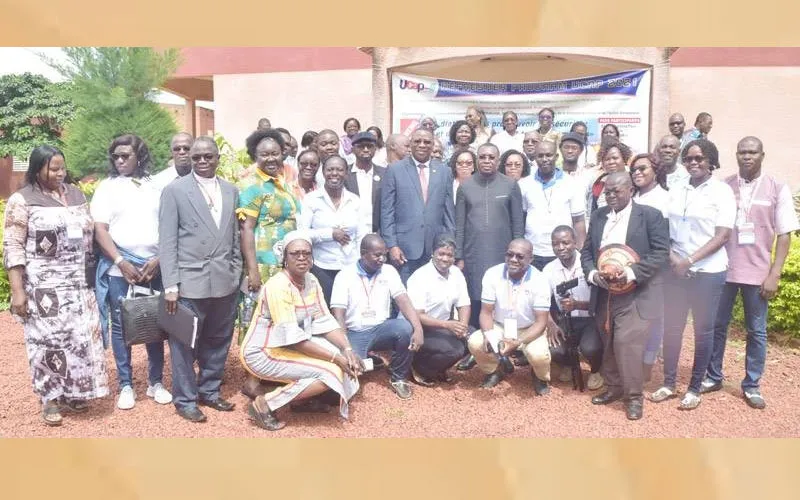He called up on Catholic journalists to respect the ethics and deontology of their profession, considering that the media are not on the sidelines of this war, which is also the war of information.
Meanwhile, in his address to the Catholic journalists during the opening session of the workshop on September 9, UCAP President, George Sunguh, thanked UCAP-Burkina Faso President for the workshop initiative.
“I would like to begin by congratulating UCAP Burkina Faso for its tenacity in organizing refresher courses in West Africa,” Mr. Sunguh said.
The Kenya-based head of the association of Catholic journalists in Africa added in reference to the six-day refresher course, “This act is quite encouraging and has helped fly the UCAP flag high in this part of the world.”
Mr. Sunguh encouraged other countries in Africa to organize similar forums saying, “I would like to call upon other UCAP national chapters to emulate this impressive deed by UCAP Burkina Faso.”
(Story continues below)
In his message to the Catholic journalists participating in the workshop in Burkina Faso, which he shared with ACI Africa, Mr. Sunguh says plans are underway for UCAP Congress later this year in the West African nation of Togo.
“As you may already know, the UCAP Continental Congress was initially scheduled for Libreville, Gabon but was postponed and rescheduled for Togo,” Mr. Sunguh says, and adds, “Unfortunately, the global health crisis of the Coronavirus pandemic has slowed our initial plans.”
“The Executive Board of the UCAP Africa in collaboration with UCAP Togo are currently planning the 2021 Congress. The venue will be Kpalime, which is 120km West of Lome – the Togolese capital” Mr. Sunguh says of the five-day Congress expected to take place from December 13.
“We welcome each and every one of you to this grand congress where we expect the participant from across Africa,” UCAP President further says of the planned Congress being organized under the theme, “Mediating Conflict, Violence, and Migration in Africa: An Examination of Underlying Factors Towards Building Sustainable Pillars of Self Determination and Human Dignity.”
Mr. Sunguh adds, “We trust and pray to God Almighty that He blesses our work and that all we do, plan and think be only that which glorifies His name.”
Jude Atemanke is a Cameroonian journalist with a passion for Catholic Church communication. He holds a Bachelor’s Degree in Journalism and Mass Communication from the University of Buea in Cameroon. Currently, Jude serves as a journalist for ACI Africa.








